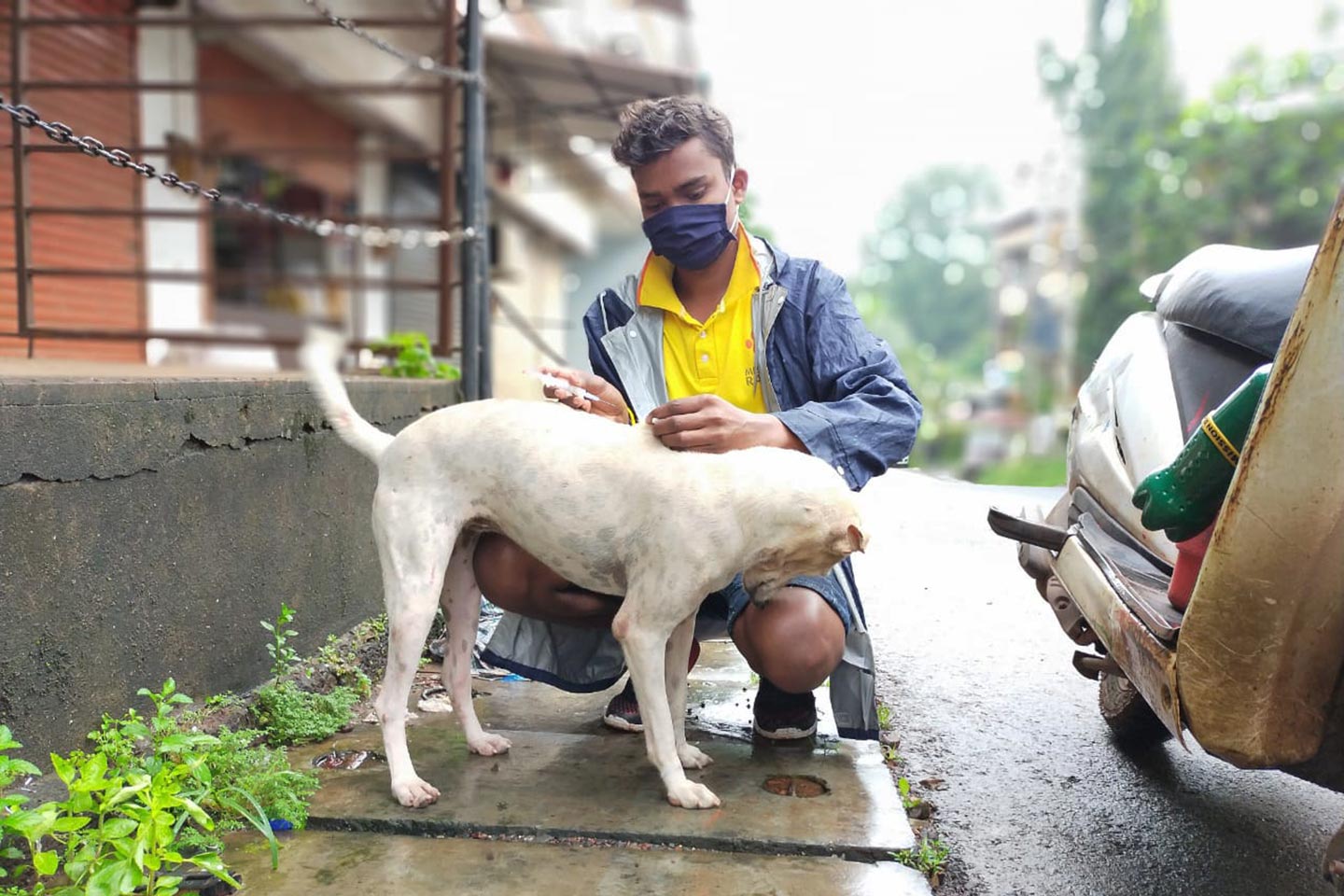28 September 2025, Geneva – In line with this year’s World Rabies Day theme, “Act Now: You, Me, Community”, the Global Alliance for Rabies Control (GARC) and Gavi, the Vaccine Alliance (Gavi) are calling for shared responsibility, strong advocacy and inclusive planning to ensure that voices from all levels – national to community – shape countries’ rabies control priorities.
With rabies being a serious public health problem in more than 150 countries, mainly in Asia and Africa, causing tens of thousands of deaths each year, communities are making meaningful progress aimed at prevention.
Innovative initiatives like GARC’s Communities Against Rabies highlight the importance of vaccinating dogs, educating the public and conducting surveillance to reduce transmission in high-risk settings. These efforts also demonstrate how structured capacity-building can drive impact. Teachers, health workers, and local stakeholders are raising awareness and monitoring bite cases using GARC’s digital and educational toolkits. Their message to the global community is clear: empowered communities are essential to ending rabies.
Despite these efforts, a significant number of people continue to suffer bites from unvaccinated dogs. Post-exposure prophylaxis (PEP) remains critical, as 99% of human rabies deaths are caused by dog-mediated transmission. Yet, many bite victims cannot access or afford PEP – turning a preventable incident into a potential death sentence. This does not have to be the reality.
GARC urges eligible countries to integrate rabies control into broader immunisation and primary health care strategies, leveraging support from Gavi to access affordable PEP. GARC is also working to strengthen the public’s understanding of how to avoid dog bites and what actions to take if one is bitten, as well as surveillance and data collection to improve the quality of interventions.
“Rabies is 100% preventable, yet it still claims a life every nine minutes,” said Dr André Coetzer, CEO of GARC. “As communities intensify their efforts to eliminate rabies, what’s needed now is for governments to embed these initiatives into long-term, strategic planning – ensuring rabies prevention is sustainably integrated into national immunisation and One Health strategies.”
Gavi is supporting eligible countries to access PEP and align rabies control with broader immunisation and health system priorities. This approach ensures that resources are directed where they can have the greatest impact.
“A rabies-free future is within reach, but only if we act together,” said Dr Stephen Sosler, Head, Vaccine Programmes, at Gavi, the Vaccine Alliance. “Gavi is committed to supporting countries to expand access to life-saving PEP vaccines as part of a coordinated, multisectoral approach that integrates dog vaccination, public education, surveillance and community engagement into national health strategies. By embedding rabies control within broader immunisation and One Health frameworks, we can protect lives and build stronger, more resilient health systems.”
GARC and Gavi have called for strategic leadership from governments and technical partners to elevate rabies elimination as a national priority, as well as ensuring community voices are amplified to inform decision-making based on local realities and needs.
Countries are encouraged to integrate rabies prevention into national health planning – including their national rabies elimination plans and immunisation strategies – with a focus on high-burden areas.
MEDIA CONTACTS
Meg Sharafudeen
+41 79 711 55 54
msharafudeen@gavi.org
Collins Weru Mwai
+25 078 783 66 38
cmwai@gavi.org

